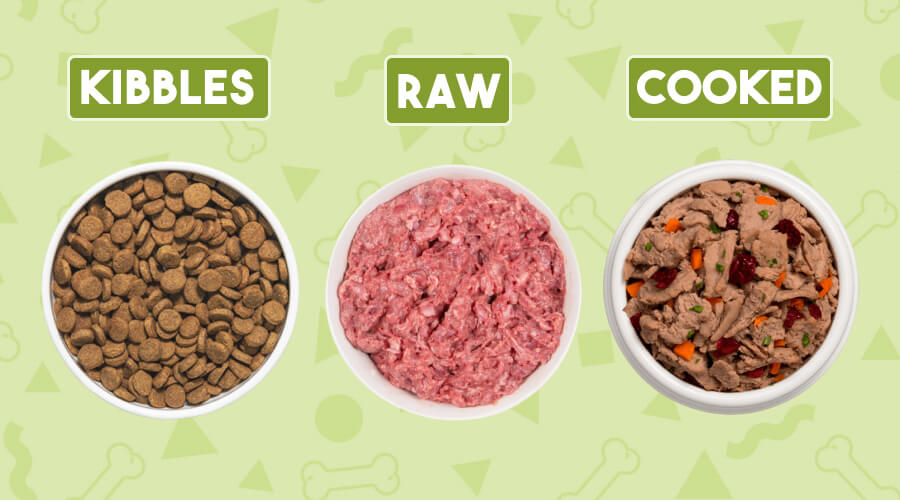Just brought home a new pup and instead of feeling joyous and excited you’re feeling overwhelmed, sad, or anxious? Perhaps even regret?
You are not alone. Puppies are a lot of work.
It’s a well-document phenomenon called the “puppy blues”, and it’s experienced by countless puppy owners – whether it’s your first time raising a puppy or your fifth time!
The puppy blues refers to an emotional state of feeling stressed, sad, and out of your depth on how to navigate your new life with a living, breathing being that needs your constant attention and love in order to survive.
Puppy training is hard (hello, puppy biting!), so if you’re feeling sad and like you’re unable to cope with your new family member, we’re here to help. The feeling will pass, and you will come out the other side with a new best friend who will love you unconditionally as long as they live.
By connecting with other puppy owners, ensuring you’re giving yourself time alone or even talking with a mental health expert, you’ll be well on your way to making it through this experience once and for all.
What Are Puppy Blues?

When you first decide to welcome a puppy into your family, you probably have this idea in your head of how it will be: leisurely walks, cuddles on the couch, lots of playtime… and this is all true and things you can expect from a dog.
But notice how we say “dog” and not “puppy”?
Once you’ve made it through the puppy stage and you’ve trained your dog well, you’ll enjoy a decade or more with a well-behaved dog who will be the extra family member you envisioned having.
But puppies are like babies. The first week I brought my Labrador puppy home, I experienced puppy blues majorly. And I had countless people tell me that raising a puppy can be harder than raising a baby (personal opinions, of course).
I was left wondering if it was worth the pain and if it’ll ever get better. The thought of rehoming crossed my mind too. I wasn’t sure I could give my Labrador puppy the life he deserved, and I felt like we weren’t connecting like I’d seen so many other dog owners and their dogs do.
Puppy blues certainly can affect anyone, whether you’re a new puppy parent or it’s your fifth time raising a puppy. Maybe you had abnormally angelic puppies the first couple of times, and your third puppy makes you want to rip your hair out! The experience varies from time to time, puppy to puppy – no one is immune from puppy blues!
How Long Do the Puppy Blues Last?

There’s no one answer that fits all – it depends on each pet owner. It could be a week, it could be a month, or it could be a few months or more.
The thing about puppies is they go through stages, and often-times a puppy will get through a stage, only to enter that stage again as they get older. It’s hard work! Puppies are great to train and you’ll think you’ve nailed their training because they’re so obedient… until they hit adolescents and it’s like they’ve forgotten everything you’ve taught them. This is very normal.
As time goes on and your puppy grows older, the puppy blues tend to be shorter and less intense. Typically for most people, the puppy blues fade away once the major training hurdles have passed, like toilet training, getting through the chewing/biting phase, and being able to leave your puppy home alone with no issues. This might be around 6 months for many dogs.
Puppy blues often occur within a few days of bringing home your puppy or dog. For some, puppy blues may not occur for a few weeks. It really depends on person to person and dog to dog.
Some evidence suggests puppy blues are at their worst in the first three weeks, and after that, some of the symptoms of anxiety, stress and overwhelm remain but are easier to manage.
Puppy Blues Symptoms

How do you know if you have the puppy blues? The signs and symptoms will vary for each person and will range in intensity and length. Most symptoms are similar to anxiety and depression disorders, and include:
- Feeling overwhelmed
- Feeling anxious, sad, and/or hopeless
- Feeling guilty or ashamed
- Feeling trapped
- Feeling empty inside
- Feeling numb
- Feeling angry or resentful towards your dog
- Thinking you made a mistake in getting a puppy, or wanting to return them
- Crying
- Increased irritability
- Difficulty concentrating
- Changes in appetite and weight loss or gain
And this is by no means an exhaustive list!
Puppy blues don’t last forever, but they can be debilitating and there is no shame in feeling the way you do about the new member of your family. It’s OK to reach out for help, whether to friends, family or a therapist.
Why Do Puppy Blues Happen?

There are many reasons why post-puppy depression can happen. Understanding the reasons why puppy blues happen int the first place can really help normalise what you’re feeling as a new dog owner and that your emotions aren’t unfounded.
Daily Life Changes
As a new puppy owner, your daily life changes drastically with a puppy (but it does eventually become a normal, new reality). In addition to your daily schedule, you now have to think about walking your puppy, playing with them, toilet breaks, training and so on. It’s a lot of new responsibility!
Changes in Sleep
Many puppy-owners struggle with changes in sleep habits, including sleep deprivation, especially during the first few weeks. You’ll likely be waking up in the middle of the night whenever your furry friend cries, either because it needs to be let out to the toilet or because it wants attention. Lack of sleep is detrimental to our overall health, so it is very normal to be feeling extra on edge with a new puppy in your life. As they say, you have to sleep when the puppy sleeps!
All Your Attention is On the Dog
As a dog parent, your attention will constantly be focused on your puppy, making sure they’re happy, making sure they’re not toileting where they shouldn’t be or chewing things they shouldn’t be. It can be exhausting and leave you constantly on edge wondering what your puppy is doing and if it’s safe/if your home is safe!
Loss of Freedom
Before you’ve trained your doggie to be left alone (yes, this needs training), you’ll find you’ve lost a lot of your old freedoms. Even once a puppy is trained to a good standard, you might find yourself having to say no to weekends away with friends because no one is available to watch the dog. The realisation of this a common reason of feeling trapped, despair and anger.
Lack of Information
If you’re a first-time puppy owner, not knowing what’s normal for your dog at its age and stage of development, as well as not knowing how to deal with issues like barking or jumping, can be difficult to manage and takes up a lot of mental energy.
No Support System
They say it takes a village to raise a baby, and the same is true for pet parents. Raising a puppy alone is a different kind of challenge, and sometimes you need to be able to give the puppy to a friend or family member while you take some time to yourself. If you lack a support system, the weight and responsibility of owning a puppy can be very heavy.
The Reality of Responsibility
If you’ve raised a baby, or the only pet or thing you’ve ever had to be responsible for is a fish, having a living, breathing, attention-seeking creature you’re fully responsible for keeping alive can bring up some intense feelings. It’s scary and overwhelming, wondering if you’re doing it right and if you’re going to mess up a crucial time in development for your puppy.
Can Puppy Blues Turn Into Actual Depression or Anxiety?
Puppy blues certainly look and act like anxiety and depression, but there are certain distinctions. The stress of bringing a new dog into your life may even trigger these conditions, or exacerbate a diagnosis you already have.
Puppy blues do go away on their own eventually, but if you notice any of the following, reach out for additional support from a professional right away:
- You’re experiencing suicidal ideation
- You’re feeling anxious about things unrelated to your puppy
- Your symptoms are impacting your ability to function, like being unable to get out of bed or being unable to sleep at all
When to Seek Help from a Therapist for Puppy Blues
You can talk to a therapist or psychologist whenever you’d like – you don’t need to wait until your symptoms are so severe you can’t get out of bed.
The sooner you reach out, the sooner you can start getting better and recovering from the puppyhood puppy blues.
You also don’t need to speak with a professional if you’re experiencing puppy blues – many puppy owners will make it through on their own, or with the support of friends and family.
7 Ways to Help with the Puppy Blues

1. Reach Out to Friends and Family
Getting through the puppy stage is so much easier when you have the support of friends and family, so don’t be afraid to ask for help. Whether it’s cooking you some food, or taking the puppy off your hands for an hour or two while you do something nice for yourself, a support system can make all the difference.
2. Talk with Other Puppy Owners
Finding other puppy owners going through the same experience can be very validating. You’re likely to meet other puppy owners at puppy pre-school, or even at the dog park (if your puppy is old enough to socialise with other dogs). There are also plenty of online forums on places like Reddit and Facebook where you can connect with others going through the same experience.
3. Find a Vet You Trust
Most vets are happy to answer quick questions or concerns you have about your puppy, without needing to go in and pay for a consultation. When my dog was a puppy, for about a week he had an upset stomach and was vomiting sporadically, so I called up my vet just to ask for some quick advice and whether it warranted me coming in for a check-up. Vets can also point you to online resources or other community groups to get more behavioural advice if that’s something you’re concerned about.
4. Research, Research, Research
There are so many amazing – and free – resources out there to help first-time puppy owners make it through the puppy stage. From books to podcasts to online videos, there’s a tonne of information on everything you need to know about raising a puppy, including potty training, barking, nipping and chewing. The more you know, the more capable you’ll feel and less overwhelmed or confused.
5. Attend Puppy Pre-School
I’d say puppy pre-school or some form of dog training is essential for all dog owners, whether you’re experiencing puppy blues or not. Puppy classes or a dedicated dog trainer will provide you with a wealth of information and techniques to work with your dog. It’s also a great place to connect with and meet other people going through the exact same experience as you.
6. Give Yourself Some Personal Time
While your puppy does need lots of love and care, so do you. You can’t look after your dog if you don’t look after yourself first. Whether it’s leaving the puppy to nap in the crate for 30 minutes (this is where crate training really comes in hand) while you go for a walk, or even putting them in day-care for a day so you can do something that fills up your cup, always take time for yourself.
7. The Feelings Will Pass
At the end of the day, puppy blues are temporary and will pass and you will one day forget it ever happened. Puppies grow into dogs that will give you undying love and affection and will enrich your life in more ways than you can possibly know.
Puppy Blues Are Normal, But Not Forever
Don’t be too hard on yourself if you’re experiencing puppy blues. There is no rule saying puppy ownership has to be the most exciting and fun time of your life. You’re allowed to feel sad, or upset, or even resentment towards your dog. Just know it will pass, and puppies do turn into adult dogs, and the emotional bond you build with your dog will be something magical. Take care of yourself, reach out for support and you will get through it.



